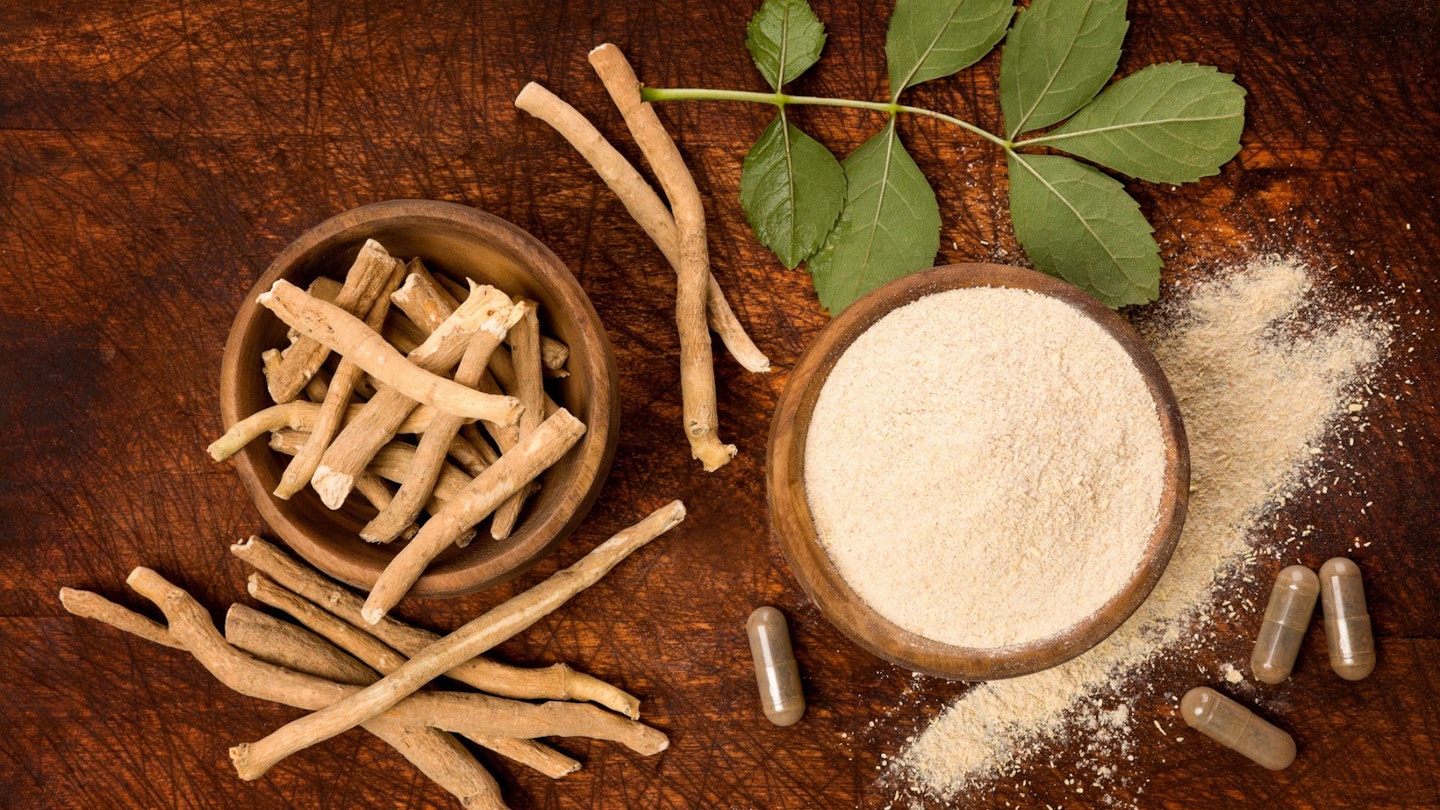What is Ashwagandha, you may ask - well, if this is your first time hearing about this herb, then here is everything you need to know. It comes from a small shrub with yellow flowers that’s native to India and Southeast Asia. This herb is essential in the world of alternative medicine. For example, it is used in the practice known as Ayurveda, which is based on Indian principles of natural healing.
So, some studies suggest that this herb may contain a range of health benefits, including reducing anxiety and stress - as well as improving arthritis and memory. Extracts or powder from the plant’s roots or leaves can be used alongside medical treatment to help with a variety of health issues. If you’ve spoken to someone about stress or anxiety, chances are that they’ve recommended it.
Best Ashwagandha supplements at a glance:
• Best Ashwagandha capsule: DR.VEGAN Ashwagandha 500mg (30 Capsules) – View on Dr. Vegan
• Best Ashwagandha gummies: Goli Nutrition, Ashwagandha Gummies (60) – View on Tesco
• Best Ashwagandha powder supplement: Nouri Organic Ashwagandha Powder 250g – View on Amazon UK
If you’re feeling a little sceptical, don’t worry. At Spirit & Destiny, we’ve done all the research for you. We’re here to offer advice on your journey into alternative and traditional medicine practice as well as present you with the best ways to consume the calming herb, from Ashwagandha supplements to Ashwagandha gummies. And hopefully, we’ll demystify some myths along the way.
Best Ashwagandha products
Best Ashwagandha capsule
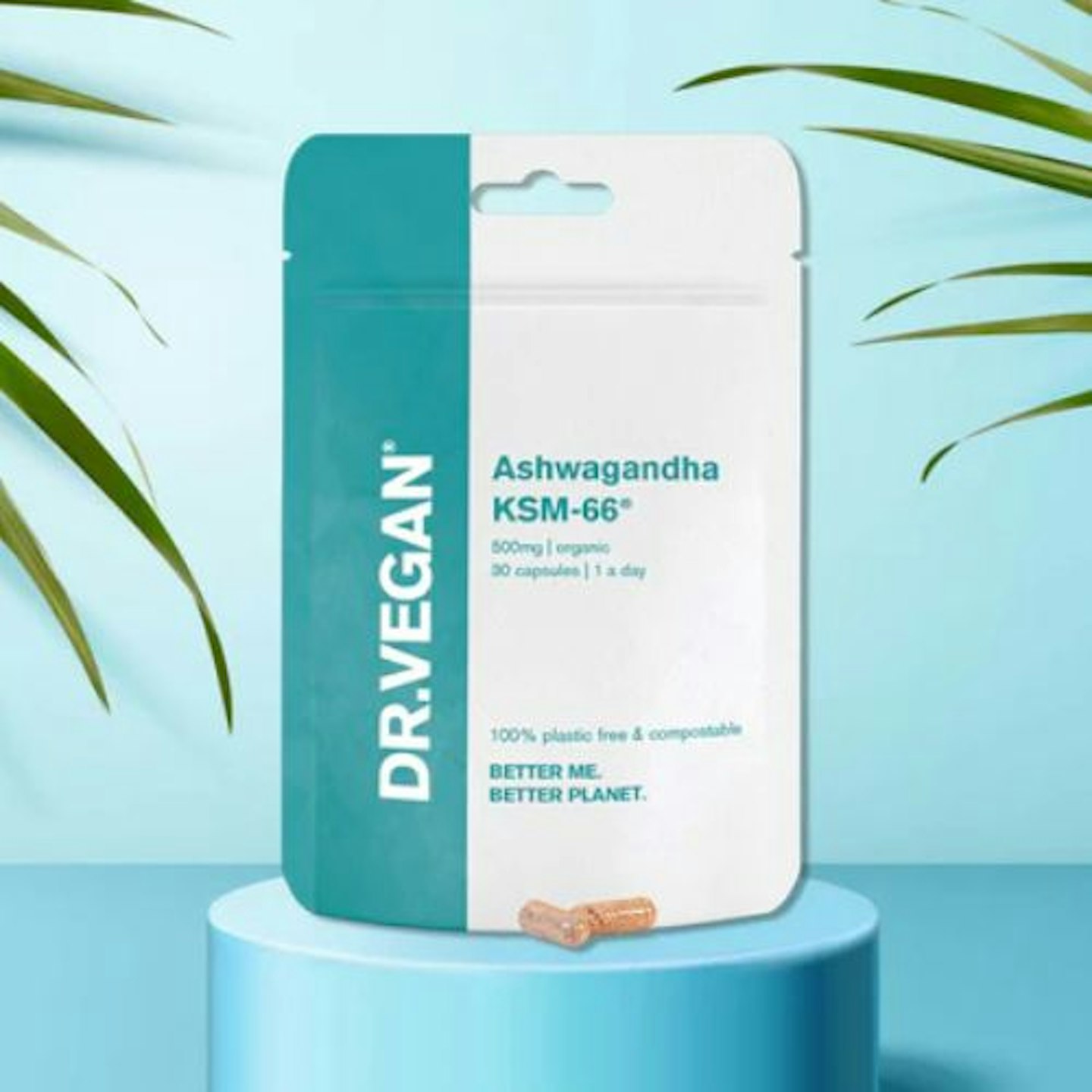 Dr Vegan
Dr Vegandrvegan.com
These vegan supplements may be exactly what you've been searching for. Crafted from 100 per cent organic and acclaimed for supporting your mental well-being, reducing stress, bringing a sense of calm, and promoting relaxation, these capsules are great for helping to manage anxious times.
Customer review: "I started taking these about six months ago. I didn't expect to notice any difference in my hip and lower back pain, but I thought it was worth trying. I am very glad I did. Within about three weeks, I became aware of the fact that my pain had eased considerably. I decided to buy a second month's supply and have been taking them ever since. I am not totally pain-free, but I'd say my pain is 80% less now. I intend to continue taking Curcumin and Turmeric and would recommend them to other people experiencing hip and back pain."
Pros
- Uses clean ingredients
- Environmentally friendly packaging
Cons
- Supplement subscriptions may not be for everyone
Best ashwagandha tablets
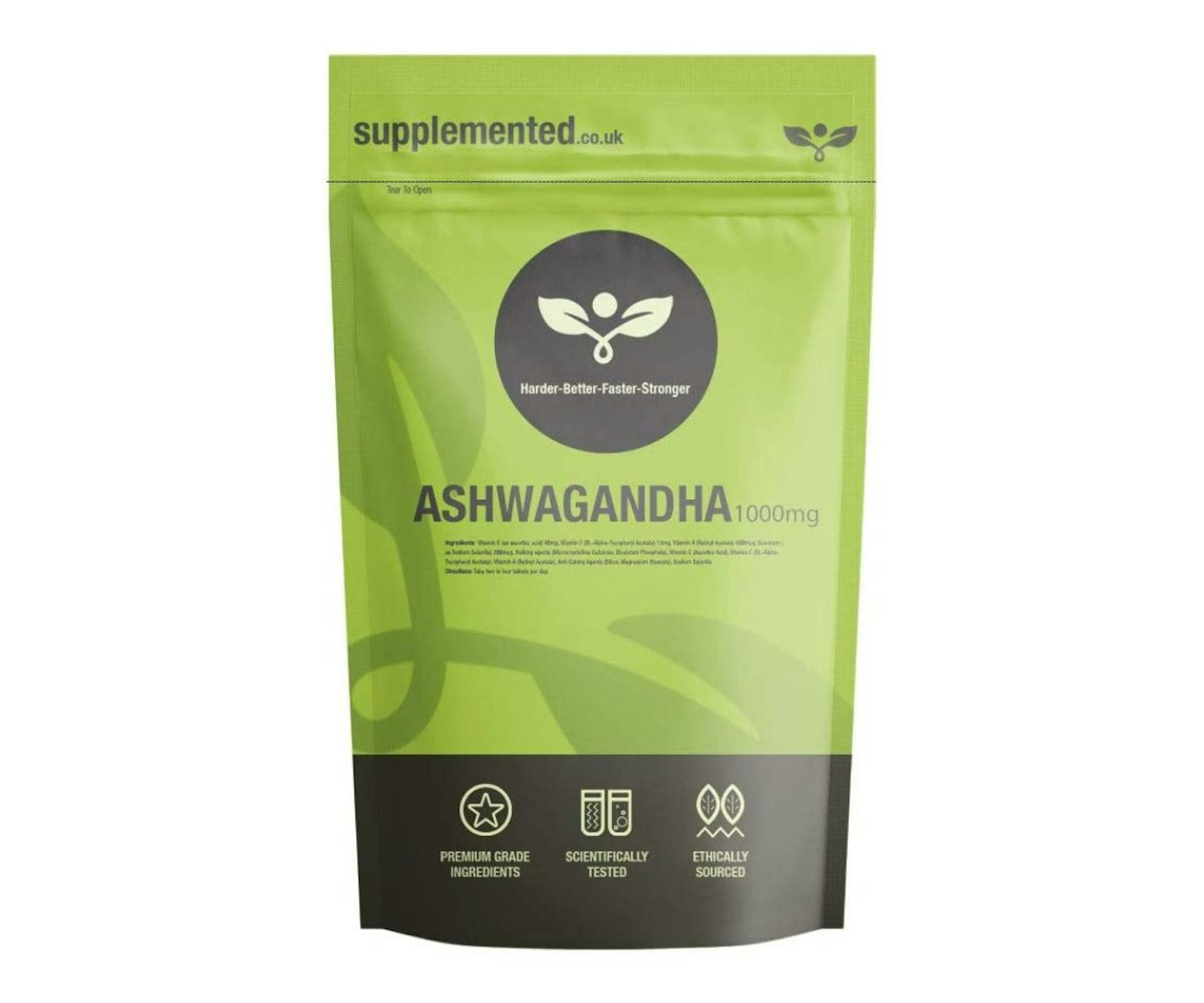 Ebay/Supplemented
Ebay/Supplementedwww.ebay.co.uk
Manufactured using high-quality ingredients, these high-strength ashwagandha tablets increase stamina and endurance. This extract will help boost immunity, as well as help with stress and mood.
Customer review: "This product has genuinely been a must-have for me for the past year and a half. I was suffering from really bad anxiety and heart palpitations which were really freaking me out, so I did some research and found that ashwagandha can help with heart palpitations especially! Ordered some, I take one a day (sometimes two if I know it’s going to be stressful) and touch wood I don’t get heart palpitations - I notice that if I miss a day or two I get heart palpitations too, so it’s proof that these little pills really do work! I also love this brand and trust them so I can’t recommend this enough if you suffer from palpitations, too."
Pros
- Easy to swallow
- Vegan formula
- Great value
Cons
- Some didn't feel the benefits
Best Ashwagandha gummies
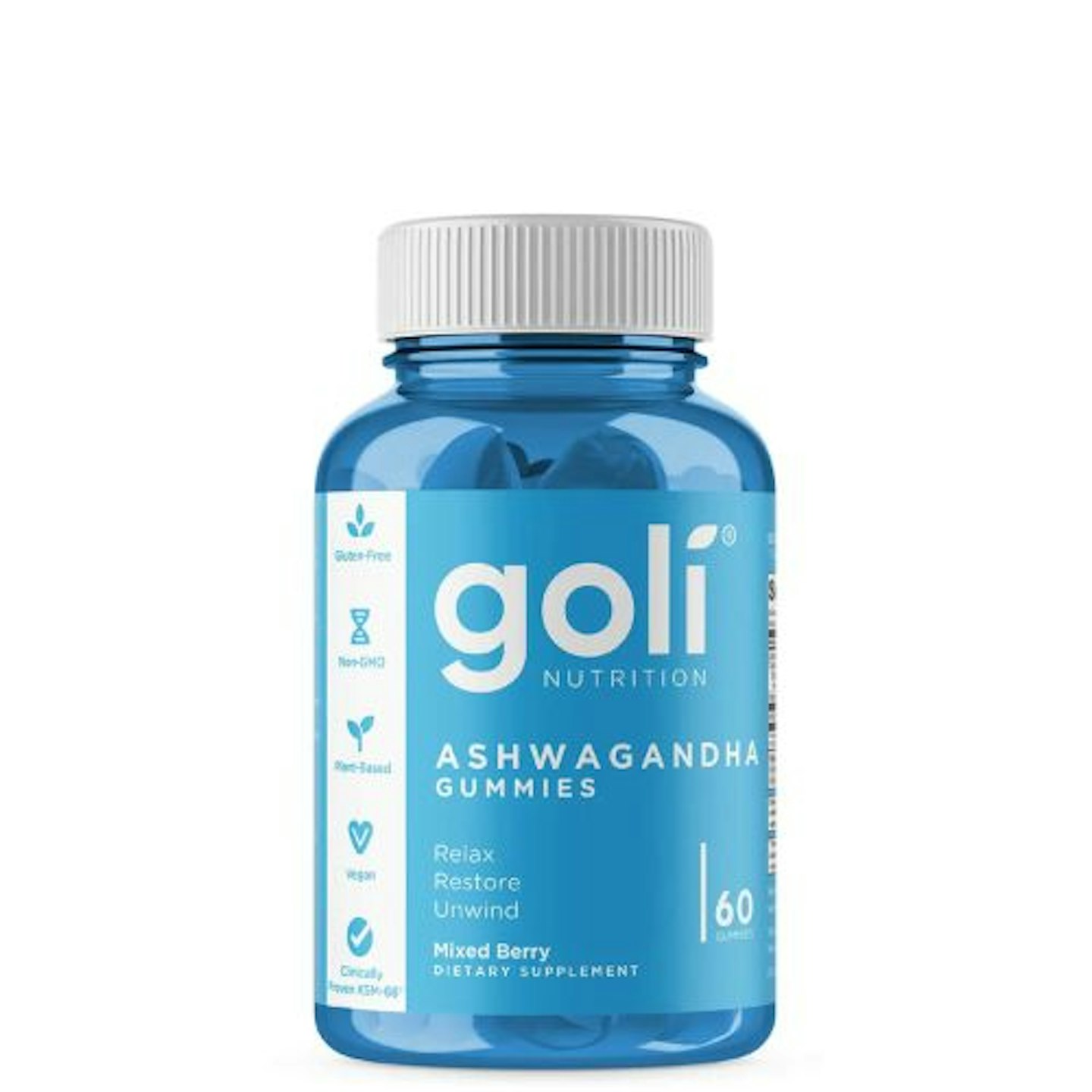 Tesco/Goli Nutrition
Tesco/Goli Nutritionwww.tesco.com
With added Vitamin D for healthy development and pectin for digestion, these mixed-berry-flavoured gummies are a hit. Goli Nutrition has “fuelled these gummies with nature”. So, if you want to support the body’s functions and wellness, they’re the perfect gummies to try.
Customer review: “I was already a user of the Goli Apple Cider, so I decided to give them a go as I’m a big fan of those. They taste delicious and I feel my well-being has definitely improved since using them and I'm sleeping better.”
Pros
- Taste great
- Suitable for regular use
Cons
- Better to take at night
| Ingredients: | Ashwagandha, Vitamin B1 & B5, Iodine, Thiamine |
| Quantity: | 60 Gummies |
| Vegan: | Yes |
Best Ashwagandha tea
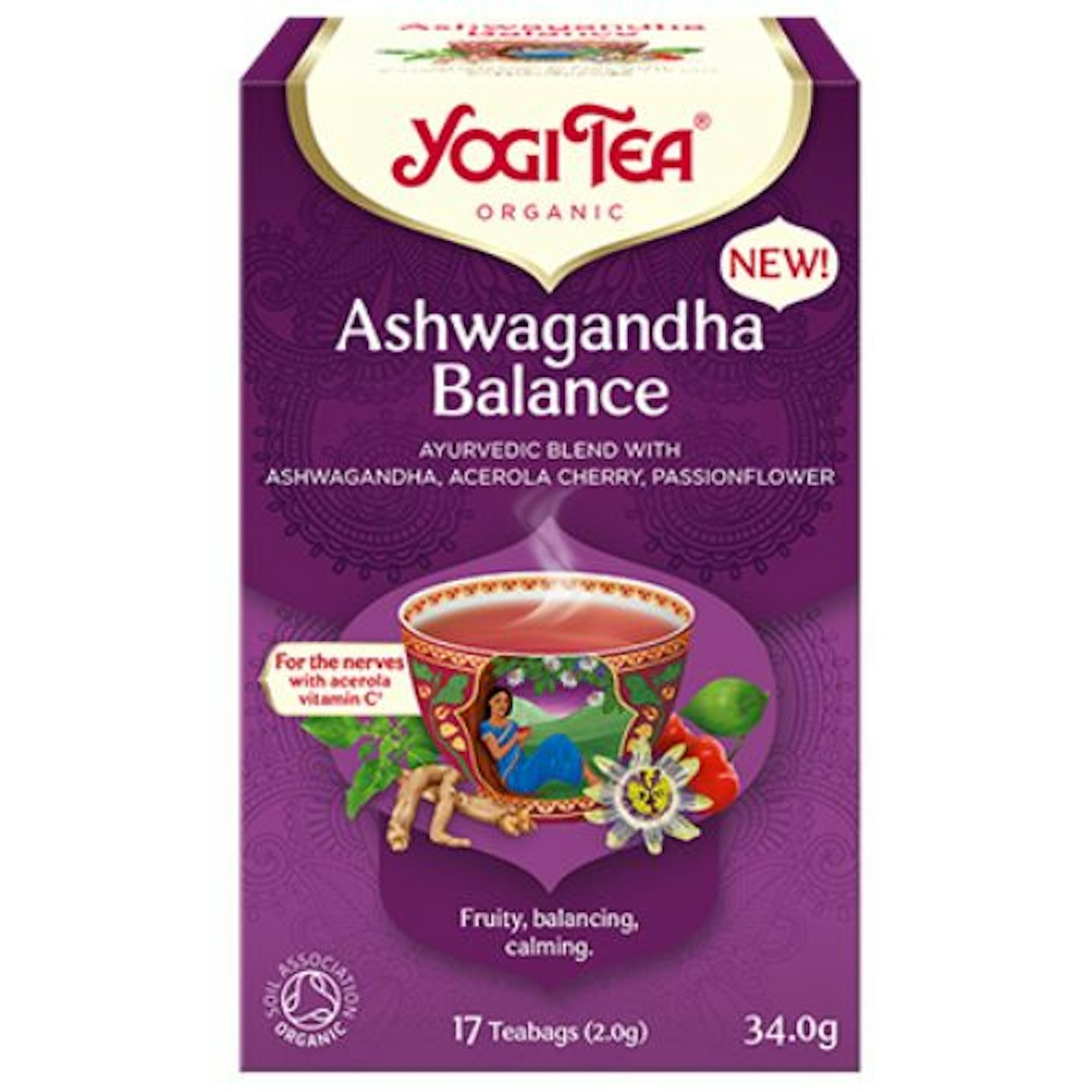 Amazon/Yogi Tea
Amazon/Yogi TeaYogi Tea Ashwagandha Balance Organic Herbal Tea is the ideal companion when you need to calm your nervous system and boost confidence. Acerola cherry, rich in vitamin C, supports your nervous system when combined with a healthy lifestyle. This delicious blend contains ashwagandha, passionflower and acerola cherry. It's a soothing hot drink that's perfect for stability seekers. Ashwagandha calms and uplifts mood, while acerola cherry offers a tangy, fruity flavour. Passionflower is known for its stress-relieving properties. To prepare, pour 250ml of freshly boiled water over the teabag and let it steep for five minutes.
Pros
- Certified Vegan
- Certified Organic by the Soil Association
Cons
- No review
| Quantity: | Pack of 17 bags |
| Ingredients: | Dried Acerola Juice* (14%), Rose Hips<em>, Lemon Grass</em>, Peppermint<em>, Liquorice</em>, Hibiscus<em>, Ashwagandha</em> (6%), Apple<em>, Passionflower</em> (5%), Lemon Balm<em>, Aronia Berries</em>, Cinnamon<em>, Orange Peel</em>, Beetroot<em>, Sweet Blackberry Leaves</em>, Cranberries<em>, Orange Oil</em>, Lemon oil* |
Best Ashwagandha coffee
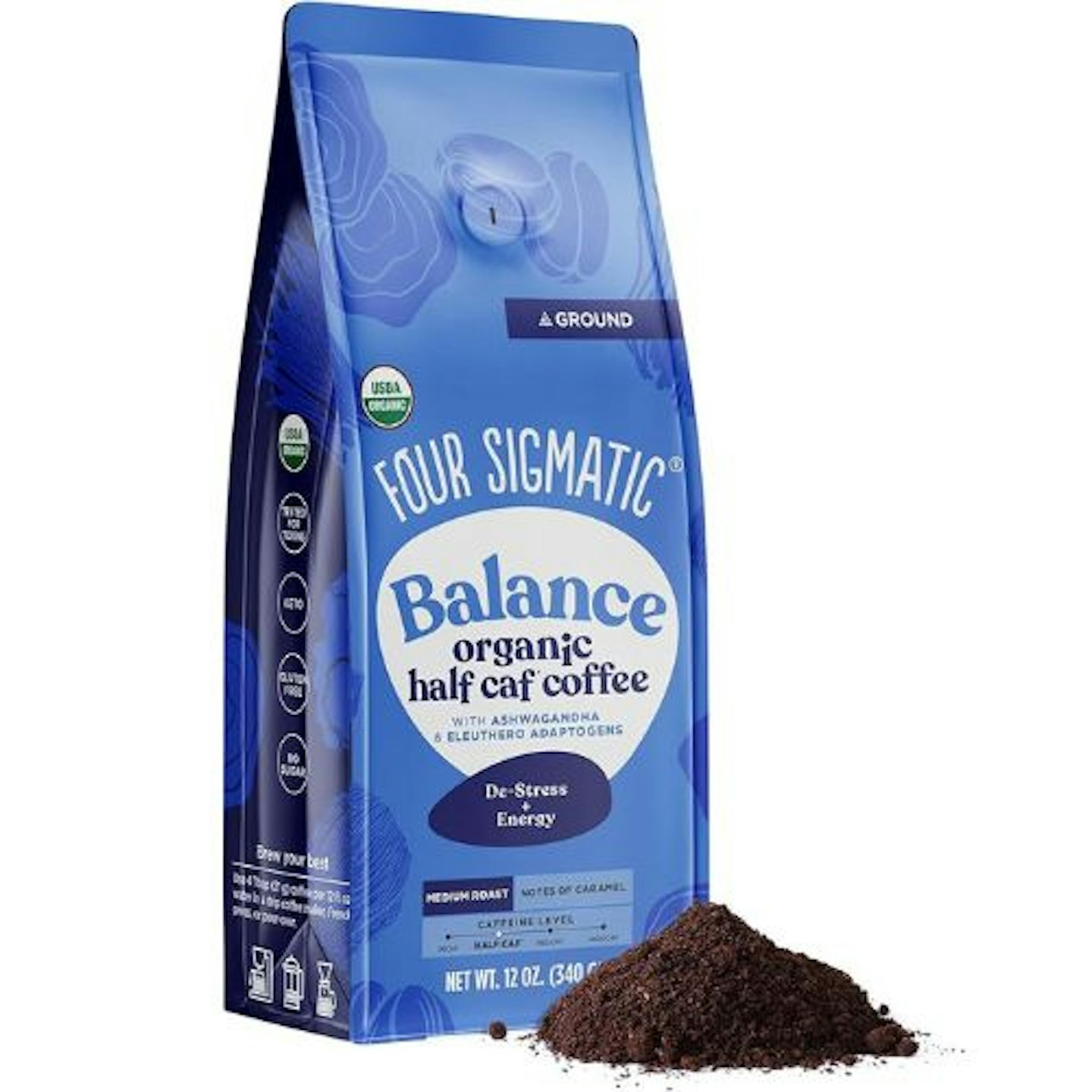 Amazon/Four Sigmatic
Amazon/Four SigmaticThis fair-trade Colombian coffee comes with adaptogenic herbs, organic holy basil, organic ashwagandha extract, organic eleuthero and wildcrafted chaga to stay calm, cool, and collected.
Pros
- Great for coffee drinkers
- High-quality adaptogenic coffee
Cons
- Caffeine may not tolerated by everyone
Best Ashwagandha powder supplement
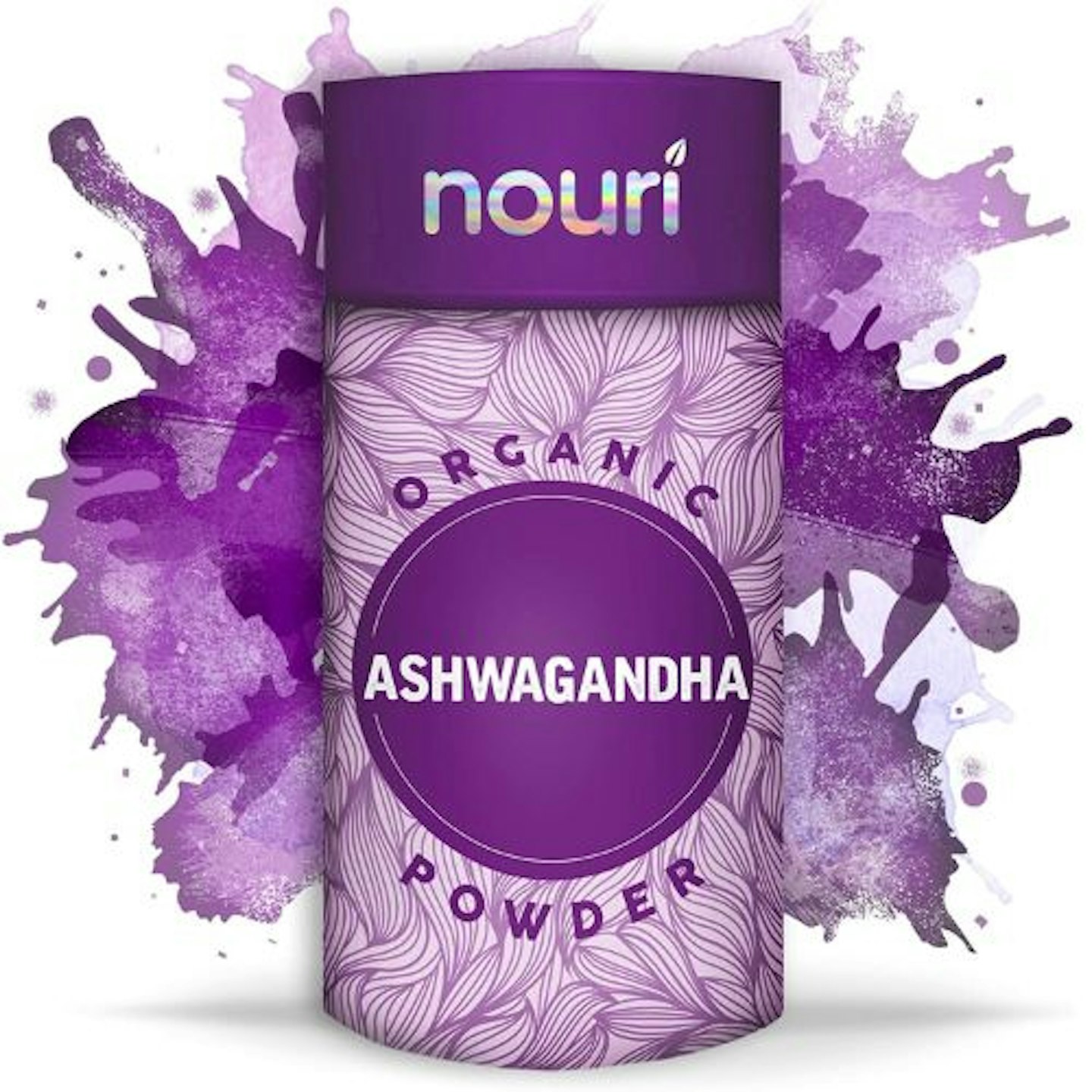 Amazon/Nouri
Amazon/NouriAdd to your morning smoothie, coffee or breakfast bowl. This versatile powder can help bring you to calm when you need it most. Nouri Organic Ashwagandha Powder originates from enriched soils cultivated without artificial fertilisers or harsh chemical pesticides, adhering strictly to sustainable farming practices. You receive ashwagandha in its purest, most natural form, benefiting both your wellbeing and the environment. This powder allows you to easily incorporate ashwagandha into your daily routine by adding it to tea, coffee, juice or smoothies. Explore its versatility in preparing Moon Milk, tonics and cookies.
Nouri Ashwagandha Powder is free from GMOs, gluten, dairy, sugar, soy, and allergens.
Customer review: "As directed I started taking two capsules daily, morning and evening. They are quite large but easy to swallow and have no taste. I've been taking them now for a week and am pleased to say that I can already see the benefits. I'm sleeping much better. I usually only sleep for five hours a night and can be awake two or three times during these hours. The last two nights I have slept for almost seven hours and only woke once. My panic attacks are also less frequent and less intense. The things that normally make me anxious are affecting me less and I seem to be coping better with everyday life."
Pros
- The powder form is versatile
- Calming
- Certified Organic by the Soil Association
Cons
- Some may not like the texture
Best Ashwagandha liquid supplement
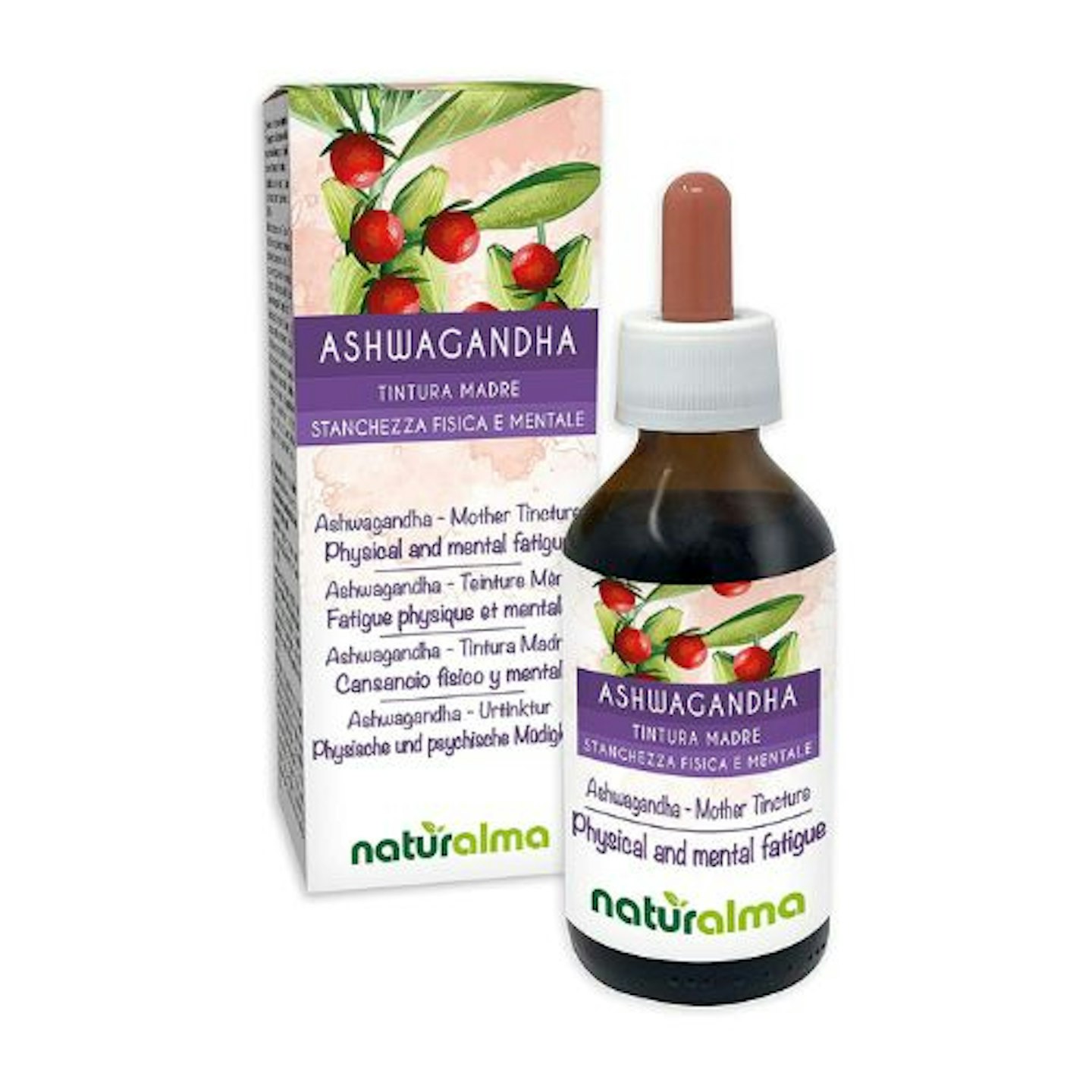 Amazon/natualma
Amazon/natualmaDrop this in some water or directly on your tongue to feel yourself destress. This Ashwagandha supplement, also known as Indian ginseng, is an excellent food supplement that is highly effective and small enough to take on the go.
Customer review: "Bought this to aid my sleep. Does the job."
Pros
- High quality
- Effective formula
- Easy to implement
Cons
- The product is diluted, but it works
Ashwagandha FAQs
What do people use Ashwagandha for?
People have used Ashwagandha for thousands of years to relieve stress, increase energy levels, and improve concentration. Even today, living in a world with prescription medication, people are turning to herbs like Ashwagandha to help with their problems – namely, their wellbeing.
Some people prefer herbal medicines.
When it comes to dealing with stress, why not take a more natural and herbal route? After all, a healthy lifestyle is crucial to our mindfulness. Some of us may need extra support to get our lives back on a good and healthy path. Combining other mindful practices with medicine like Ashwagandha will build your resilience to stress over time. Recovery, even, could be on the cards.
There is evidence to suggest that Ashwagandha can have neuroprotective and anti-inflammatory effects. Reducing inflammation can protect the body against a variety of conditions. In theory, Ashwagandha may be able to help with stress, anxiety, pain, diabetes, endurance, muscle mass, performance, arthritis and general cognitive function.
What are the benefits of Ashwagandha?
Ashwagandha, in Ayurvedic practices, is considered a Rasayana - which means that it helps maintain youth, both physically and mentally. We’re looking at traditional practice – as well as modern science – to demystify Ashwagandha at Spirit & Destiny.
Regarding stress and anxiety, this herb may have a calming effect on their symptoms. For example, in 2019, a study found that Ashwagandha significantly reduced people’s stress levels, including the stress hormone cortisol. Although research around Ashwagandha is looking promising, scientists need to delve deeper before recommending the herb to treat anxiety.
Another traditional usage of Ashwagandha is to treat arthritis. To clarify, this herb may offer great relief for those afflicted with rheumatoid arthritis. How? Well, it may act as pain relief by blocking signals that travel along the nervous system. Plus, Ashwagandha may even have anti-inflammatory properties.
Though thought to be helpful for diabetes, there is limited scientific evidence to back this. So, ashwagandha may be able to lower blood sugar levels, benefitting some diabetics. It’s believed that compounds within this plant have an effect on insulin secretion and glucose absorption from the bloodstream.
When it comes to cognitive function, Ashwagandha has been known to be beneficial. It is thought that Ashwagandha may improve memory, reaction time, and the ability to perform tasks. Plus, research suggests that this herb may help reduce symptoms of depression and benefit people with some mental health conditions - such as schizophrenia. However, more research is needed.
Additionally, there is evidence that Ashwagandha is a herbal sleep aid that can help us sleep help us sleep. No doubt this will help our wellbeing, too. After all, sleep is your body’s way of healing. It has the potential to improve your productivity and memory. Sleep and cognitive function are intrinsically linked. Ashwagandha could be beneficial for those of us who are feeling generally run-down.
Are there any precautions to take with Ashwagandha?
According to Dr Yufang Lin MD, Ashwagandha is generally safe to use:
“Most people can take this supplement, although it is always best to discuss it with your [GP] first. Ashwagandha is generally tolerated well. However, the most common side effects are diarrhoea, gastrointestinal upset, vomiting and nausea.”
However, it is unsafe to use Ashwagandha when pregnant and/or breastfeeding. Unfortunately, there isn't enough reliable information to know the side effects of taking Ashwagandha. Plus, it may interact with some medications. So, make sure you’re checking with your GP and monitoring your general health if you start taking Ashwagandha supplements.
Piper Huxley is a Homes, Garden and Wellness Product Writer for Spirit & Destiny, an all-rounder: from health to spirituality. When not at her desk, she’s practising yoga or in deep reflection.
